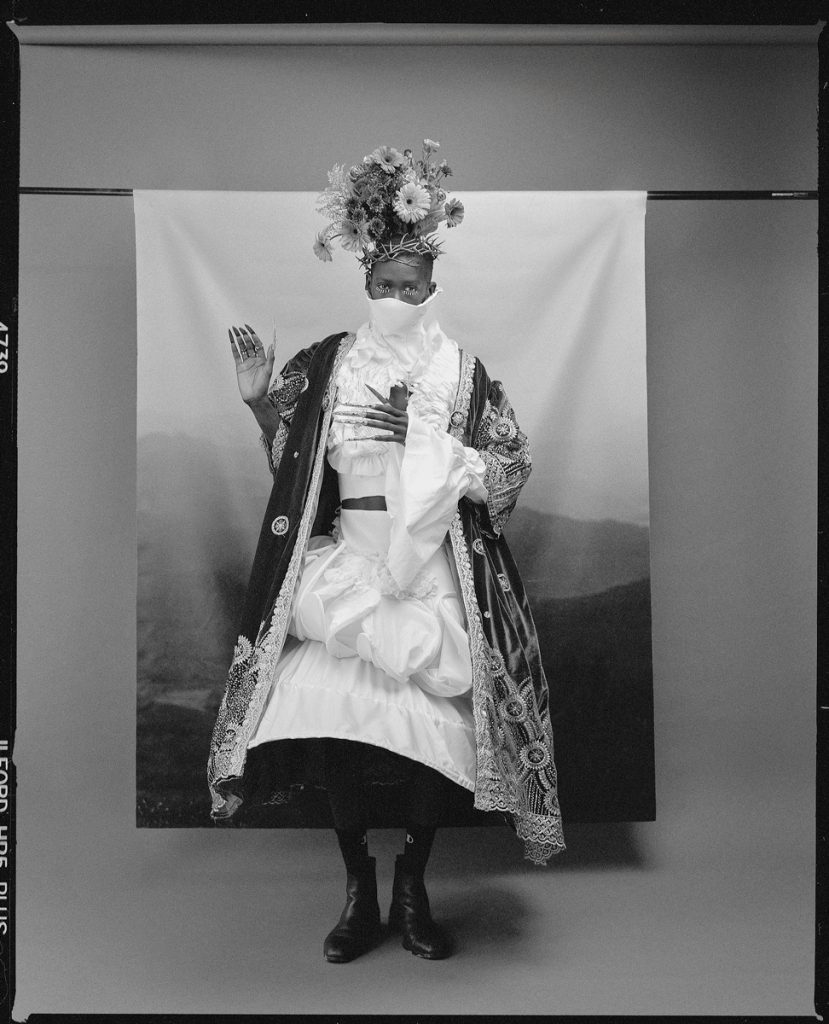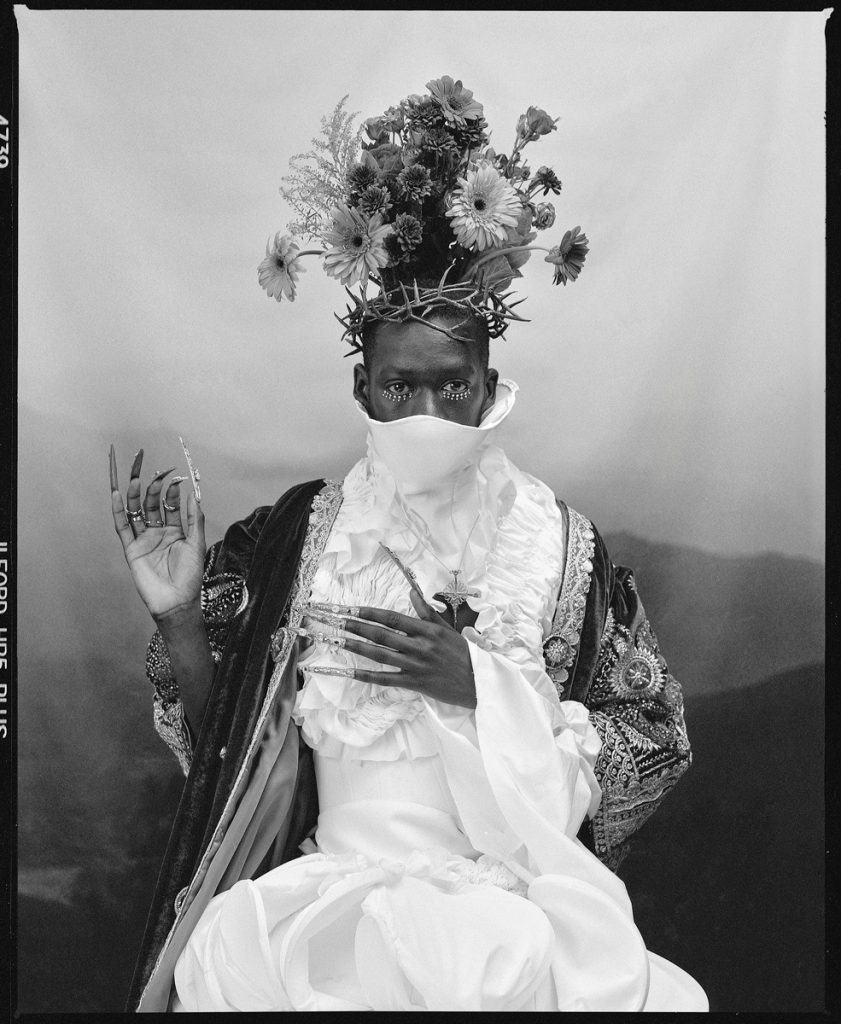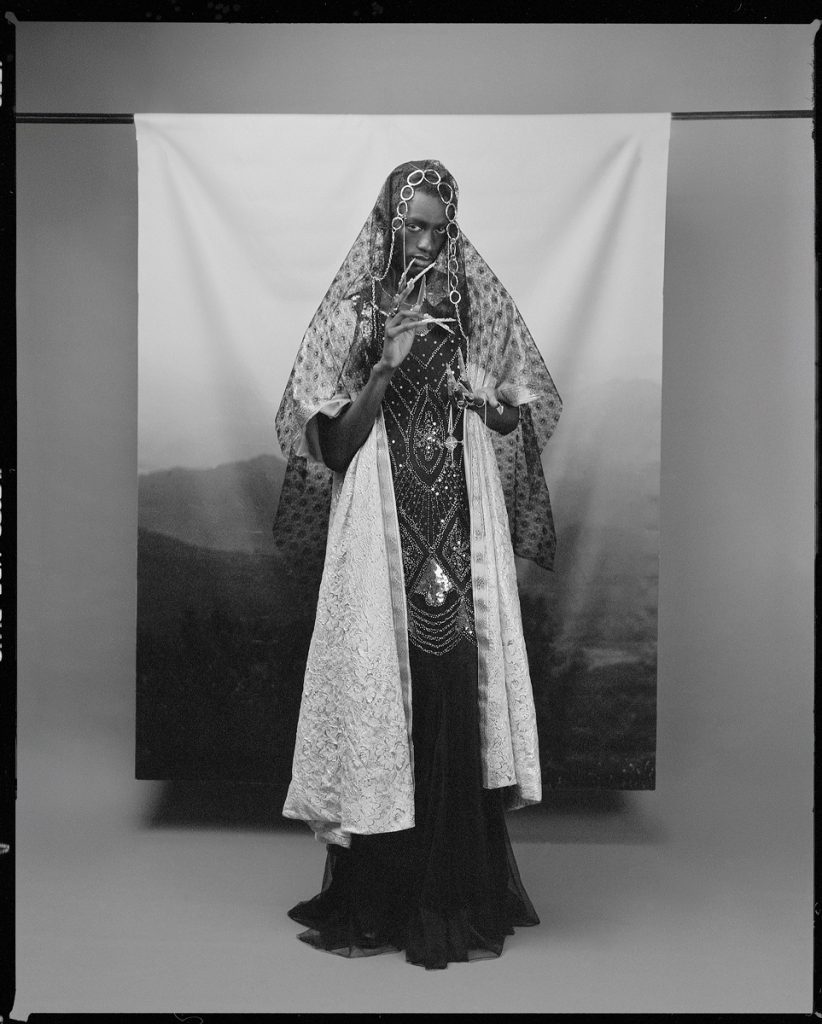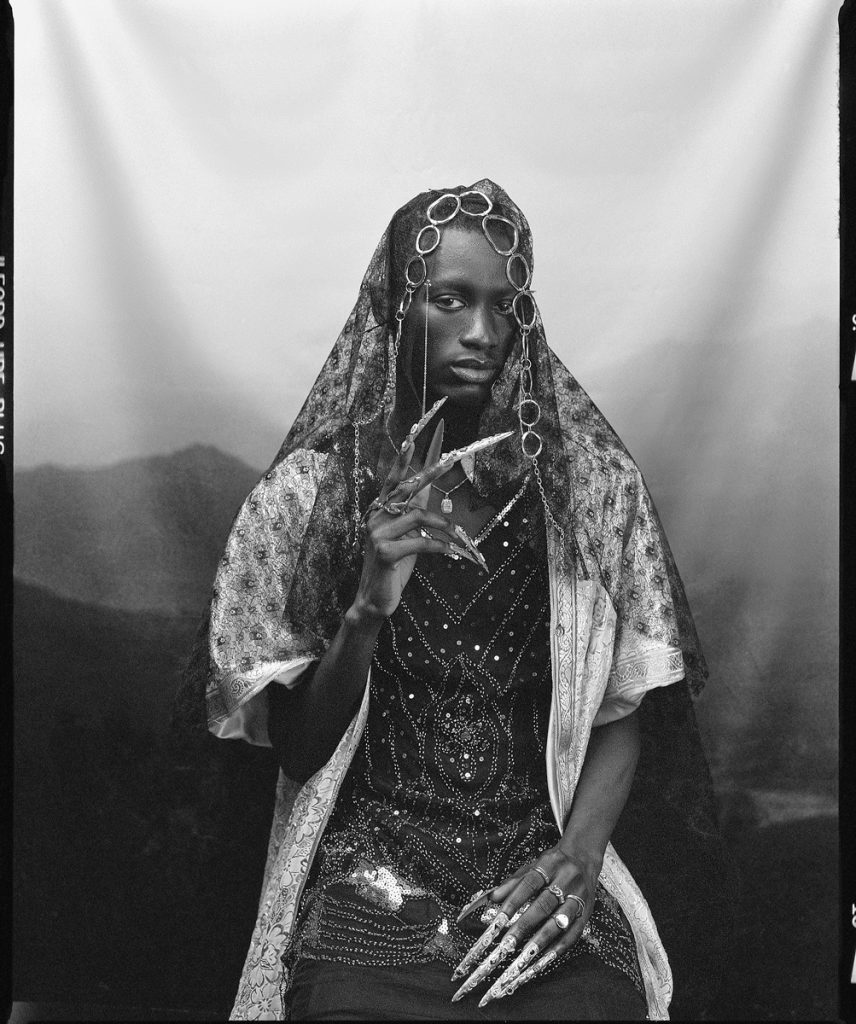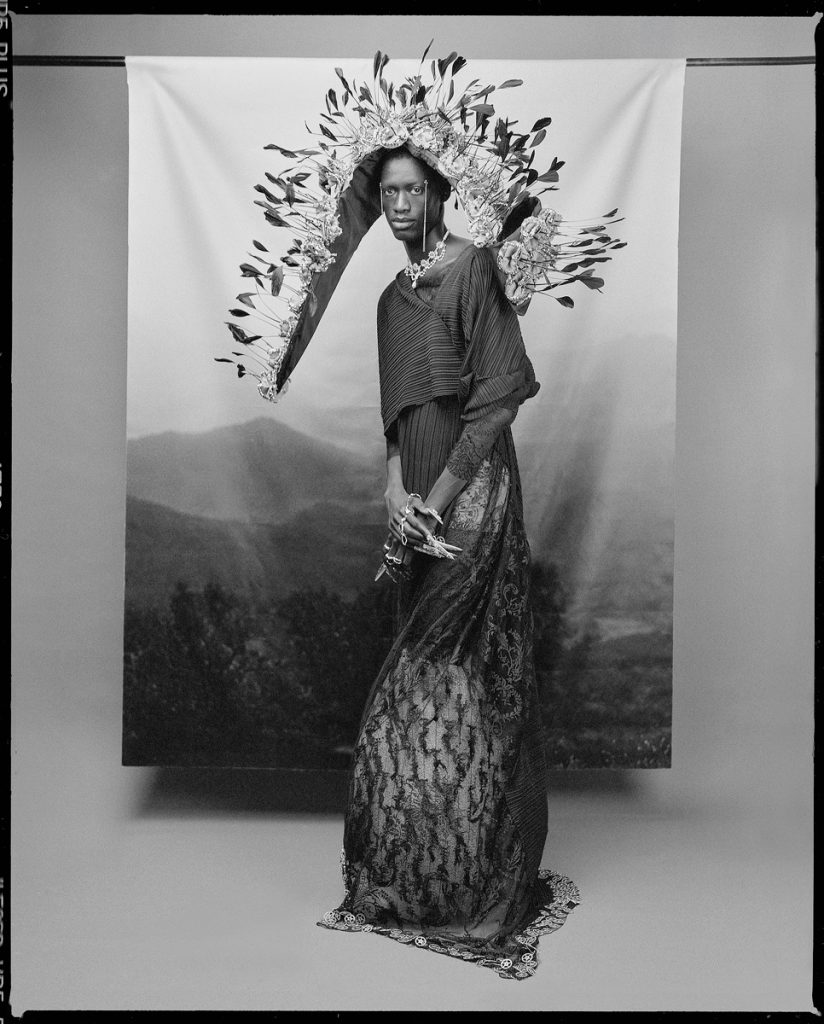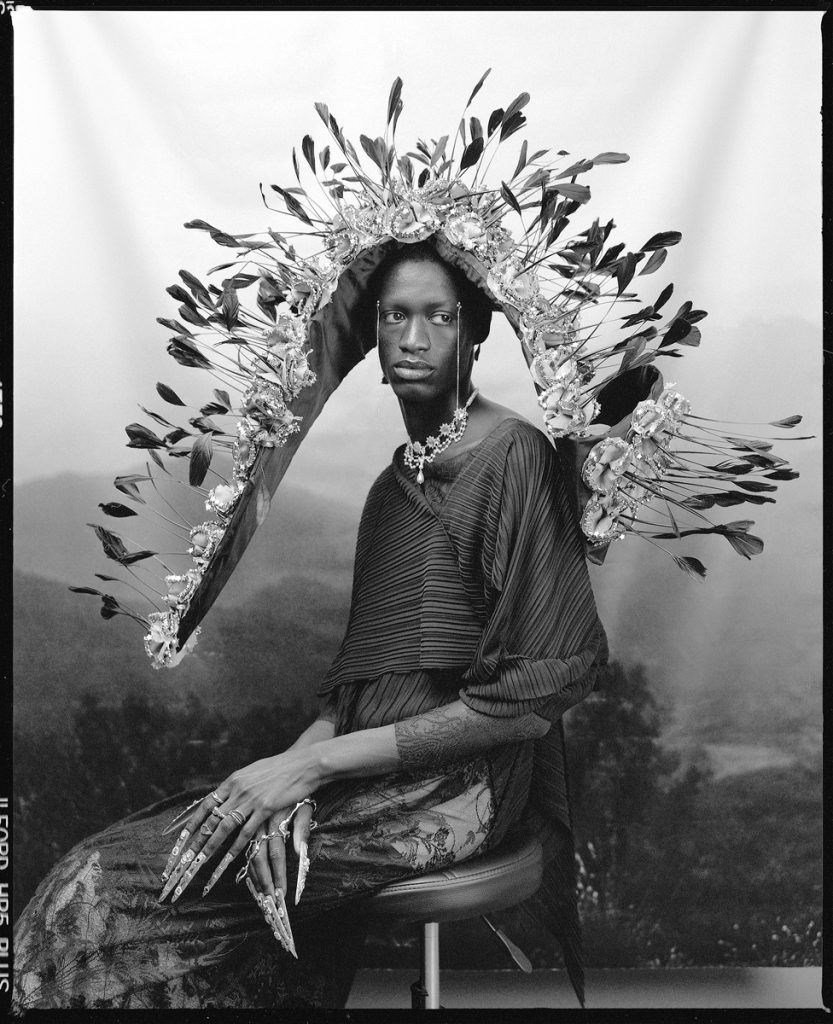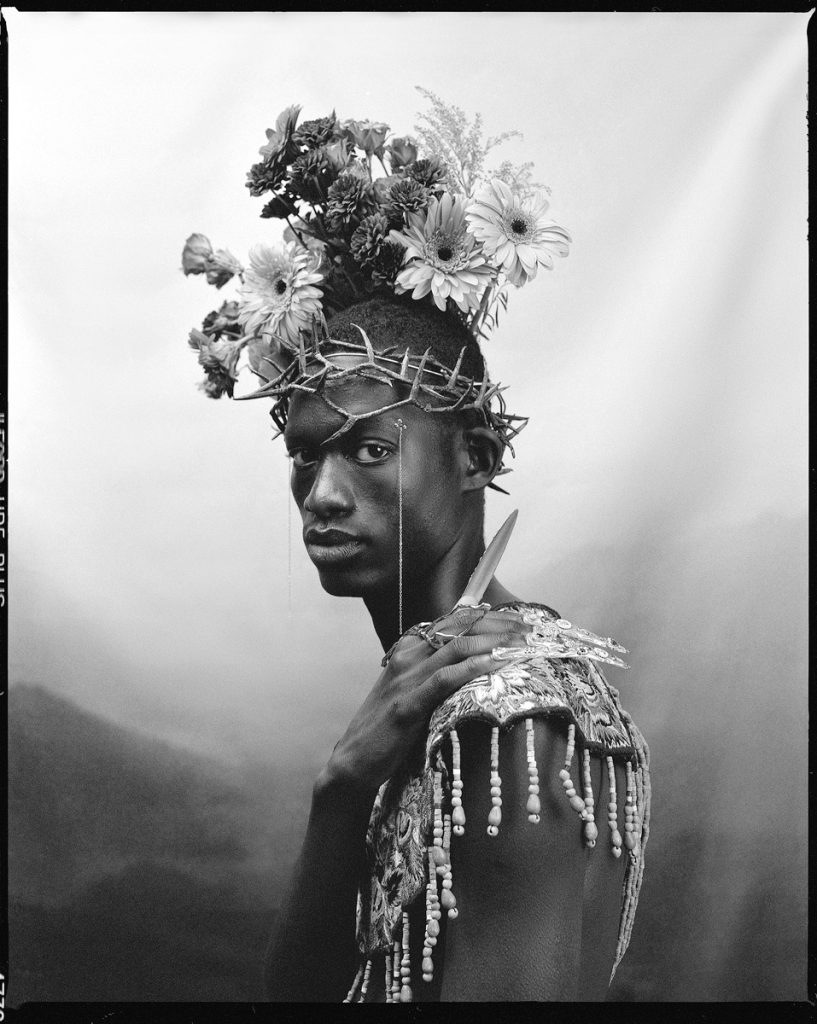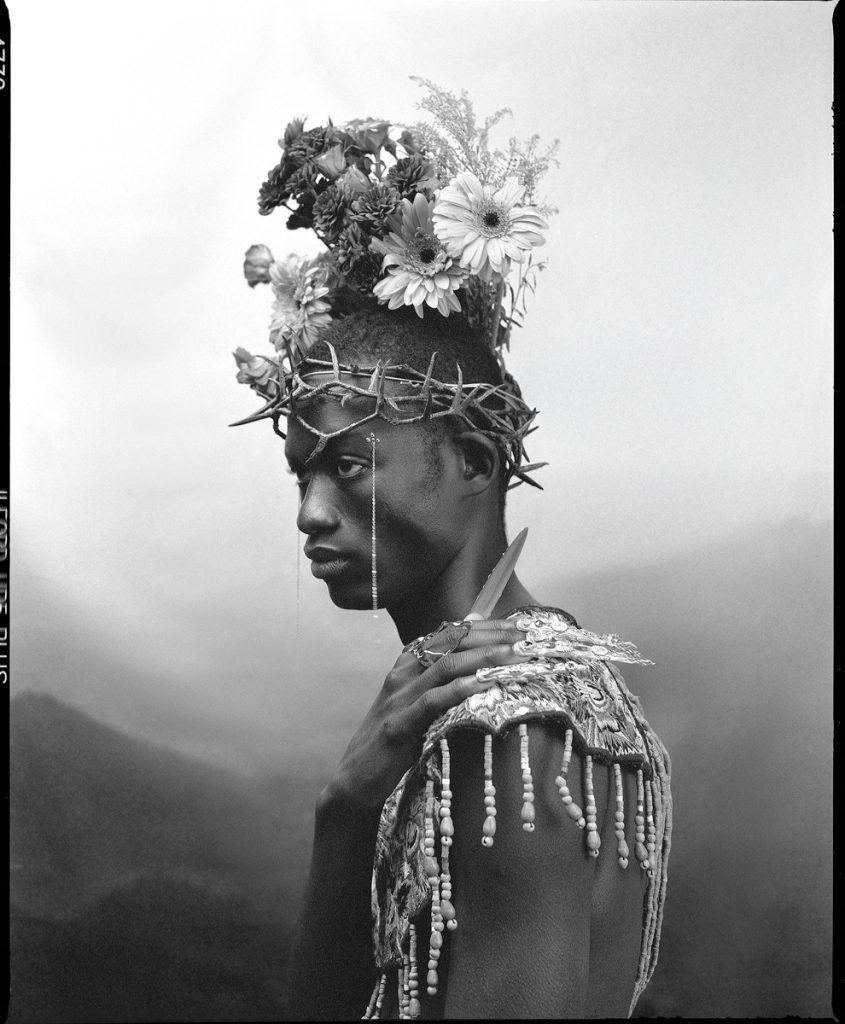La Santísima Tragedia Posted On 6th May 2025 To Magazine & Stories

La Santísima Tragedia
Fanesca: A Celebration of Cultural Syncretism Through Fashion and Photography.
Fanesca: Una celebración del sincretismo cultural a través de la moda y la fotografía.
- ILFORD HP5+
- ILFORD HP5+
Latin American Society
Fanesca is an evocative body of work created by London-based photographer Lucho Dávila, exploring cultural syncretism and the evolution of identity in contemporary Latin America. Through this ongoing autoethnographic project, Dávila reflects on his Spanish and Ecuadorian heritage, capturing the intricate interplay between tradition and modernity. The project’s fourth phase, La Santísima Tragedia, delves deeper into the cultural narratives that shape Latin American society, using fashion as a lens to examine identity and nostalgia.
Fanesca es una obra evocadora, creada por el fotógrafo ecuatoriano-español radicado en Londres, Lucho Dávila, que explora el sincretismo cultural y la evolución de la identidad en la América Latina contemporánea. A través de este proyecto autoetnográfico en constante desarrollo, Dávila reflexiona sobre su herencia española y ecuatoriana, capturando la compleja interacción entre la tradición y la modernidad. La cuarta fase del proyecto, La Santísima Tragedia, profundiza en las narrativas culturales que configuran la sociedad latinoamericana, utilizando la moda como lente para examinar la identidad y la nostalgia.
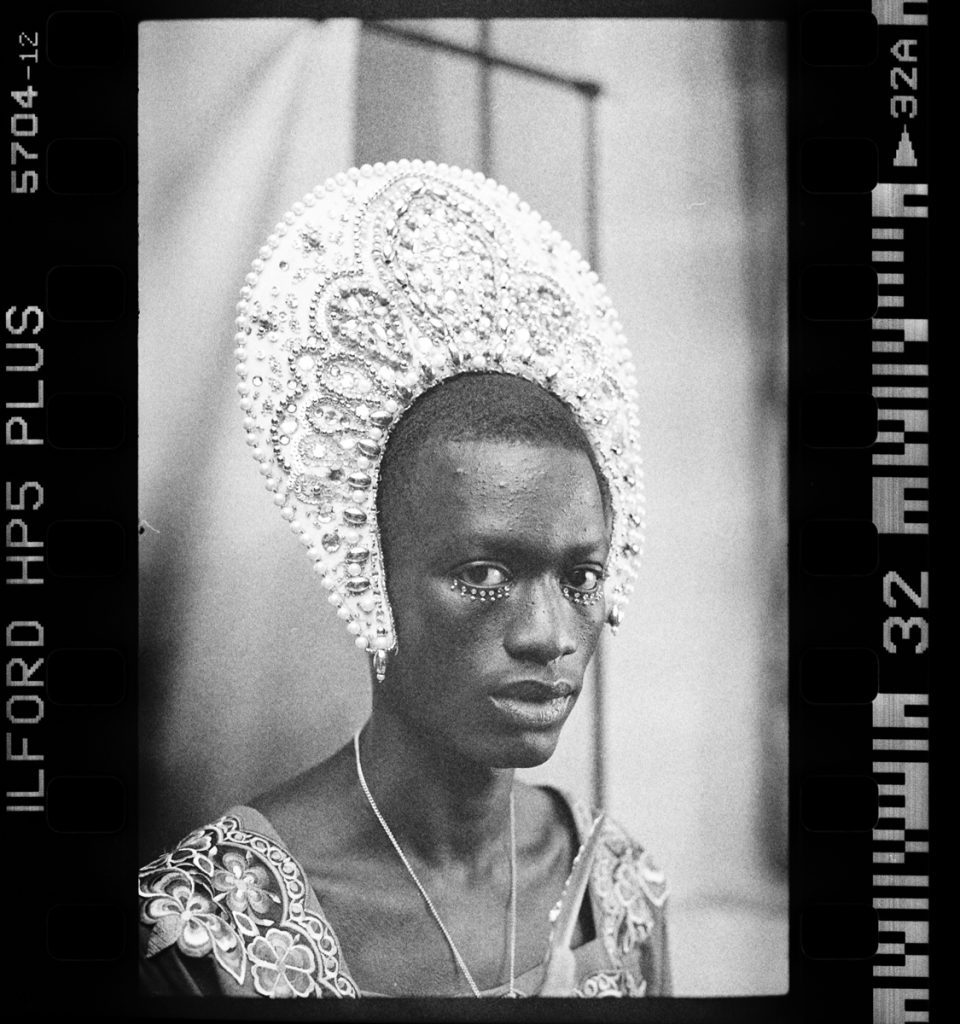
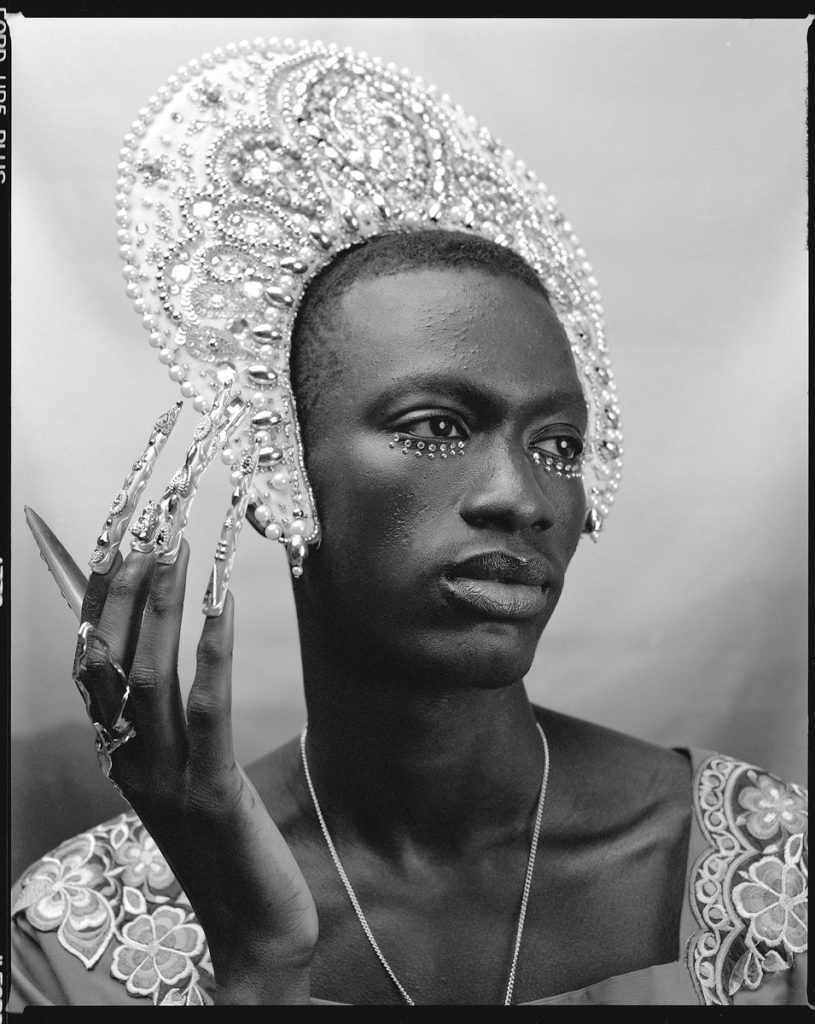
The Past and Present
The series takes its name from Fanesca, a traditional Ecuadorian dish rooted in Indigenous origins and adapted during Spanish colonization to incorporate religious significance. Much like the dish, Dávila’s project celebrates how external influences have reshaped identity, blending the past and present.
La serie toma su nombre de Fanesca, un plato tradicional ecuatoriano de origen indígena que, durante la colonización española, adquirió un significado religioso. Al igual que el plato, el proyecto de Dávila celebra cómo las influencias externas han reconfigurado la identidad, fusionando pasado y presente.
- ILFORD HP5+
- ILFORD HP5+
A Vibrant Tapestry
In this latest phase, Dávila reinterprets La Mama Negra, a folkloric figure from Latacunga, Ecuador. Also known as La Santísima Tragedia or La Virgen de la Merced. This character, rich in syncretic symbolism, embodies a confluence of Indigenous, Spanish, and African cultural elements. The celebration is a vibrant tapestry of pre-Columbian traditions and post-colonial influences, seamlessly weaving Christian rituals into its fabric. Rooted in gratitude for the Virgin of La Merced, credited with halting the Cotopaxi volcano's eruption in 1742, the celebration is a testament to Ecuador's layered history and spiritual resilience.
En esta última fase, Dávila reinterpreta a La Mama Negra, una figura folclórica de Latacunga, Ecuador, también conocida como La Santísima Tragedia o La Virgen de la Merced. Este personaje, cargado de simbolismo sincrético, encarna la confluencia de elementos culturales indígenas, españoles y africanos. La celebración es un mosaico vibrante de tradiciones precolombinas e influencias coloniales, en el que los rituales cristianos se integran de forma orgánica. Nacida del agradecimiento hacia la Virgen de La Merced, a quien se atribuye haber detenido la erupción del volcán Cotopaxi en 1742—, la festividad es un testimonio de la historia estratificada y la resiliencia espiritual del Ecuador.
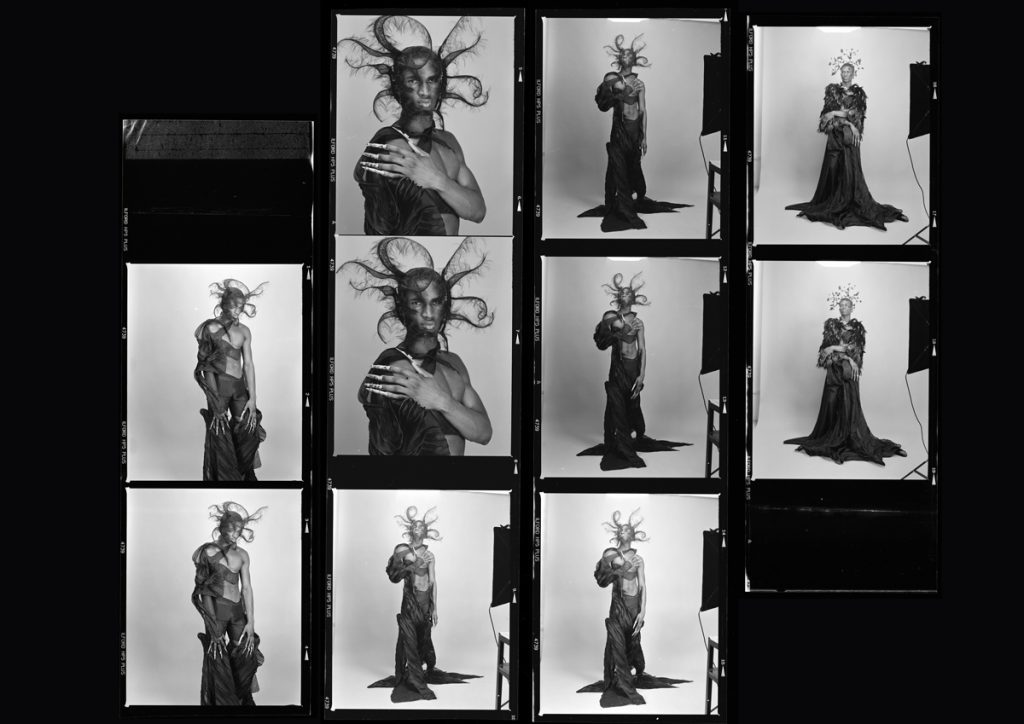
The Analogue Community Grant
Thanks to ILFORD's generous support through the Analogue Community Grant, Dávila was able to bring this phase of Fanesca to life. ILFORD provided HP5+ and Delta 400 film stocks in 120 and 135 formats, which played a pivotal role in capturing the project’s intricate textures and tones as HP5+ gives you enough flexibility to work with in post-processes. The final photoshoot took place in Hackney, London, requiring two attempts to achieve the vision that reflects the depth of research and cultural reverence behind these images.
Gracias al generoso apoyo de ILFORD a través del Analogue Community Grant, Dávila pudo dar vida a esta cuarta fase de Fanesca. Ilford proporcionó películas HP5 y Delta 400 en formatos de 120 y 135, que jugaron un papel fundamental en la captura de las texturas y matices del proyecto, ya que HP5 ofrece una gran flexibilidad en procesos de postproducción. La sesión final tuvo lugar en Hackney, Londres, y requirió dos intentos para alcanzar la visión que reflejara la profundidad de la investigación y la reverencia cultural detrás de estas imágenes.
- ILFORD HP5+
- ILFORD HP5+
A Fresh Perspective
The first shoot, in July, took place at The Nook Studio, and marked the beginning of this exploration. Dávila employed his trusted Mamiya RZ 67 with a 90mm lens and waist-level viewfinder. However, technical challenges emerged as the camera ran out of battery mid-shoot. This setback prompted the team to revisit and refine their approach. They reconsidered the background, aiming to add texture and context, which is crucial for the monochromatic medium. After months of recalibration, the second and final shoot took place on November 13th at Tiny Room Studio in Hackney. With a revised team, a fresh perspective, and an enhanced understanding of La Mama Negra, the vision crystallized. The background was thoughtfully reimagined, using a photograph Dávila took in Ecuador, and the character's reinterpretation was brought to life with greater clarity and intention.
La primera sesión, realizada en julio 2024 en The Nook Studio, marcó el inicio de esta exploración. Dávila utilizó su fiel Mamiya RZ67 con un objetivo de 90mm y visor a nivel de cintura. Sin embargo, surgieron problemas técnicos cuando la cámara se quedó sin batería a mitad de la sesión. Este contratiempo llevó al equipo a replantear su enfoque. Se reconsideró el fondo con el objetivo de aportar más textura y contexto, un aspecto crucial al trabajar en un medio monocromático.Tras meses de ajustes, la segunda y definitiva sesión se realizó el 13 de noviembre en Tiny Room Studio, también en Hackney. Con un equipo renovado, una perspectiva fresca y una comprensión más profunda de La Mama Negra, la visión cristalizó. El fondo fue cuidadosamente reimaginado, utilizando una fotografía tomada por Dávila en Ecuador, y la reinterpretación del personaje cobró vida con mayor claridad e intención.
- ILFORD HP5+
- ILFORD HP5+
The Importance of Collaboration
Dávila emphasises the importance of collaboration in achieving these results. “The team is key,” he reflects. “They must understand the director’s vision while bringing their creativity to the table.” Equally vital is fostering a safe environment for models, particularly those who are navigating new surroundings. Their comfort allows them to fully embody the character, lending authenticity to the work.
Dávila destaca la importancia de la colaboración para lograr estos resultados. “El equipo lo es todo,” afirma. “Tiene que entender la visión del director, pero también aportar su creatividad a la mesa.” Igualmente esencial es generar un entorno seguro para las modelos, especialmente cuando se enfrentan a espacios nuevos. Su comodidad les permite encarnar el personaje con autenticidad, aportando autenticidad al trabajo.
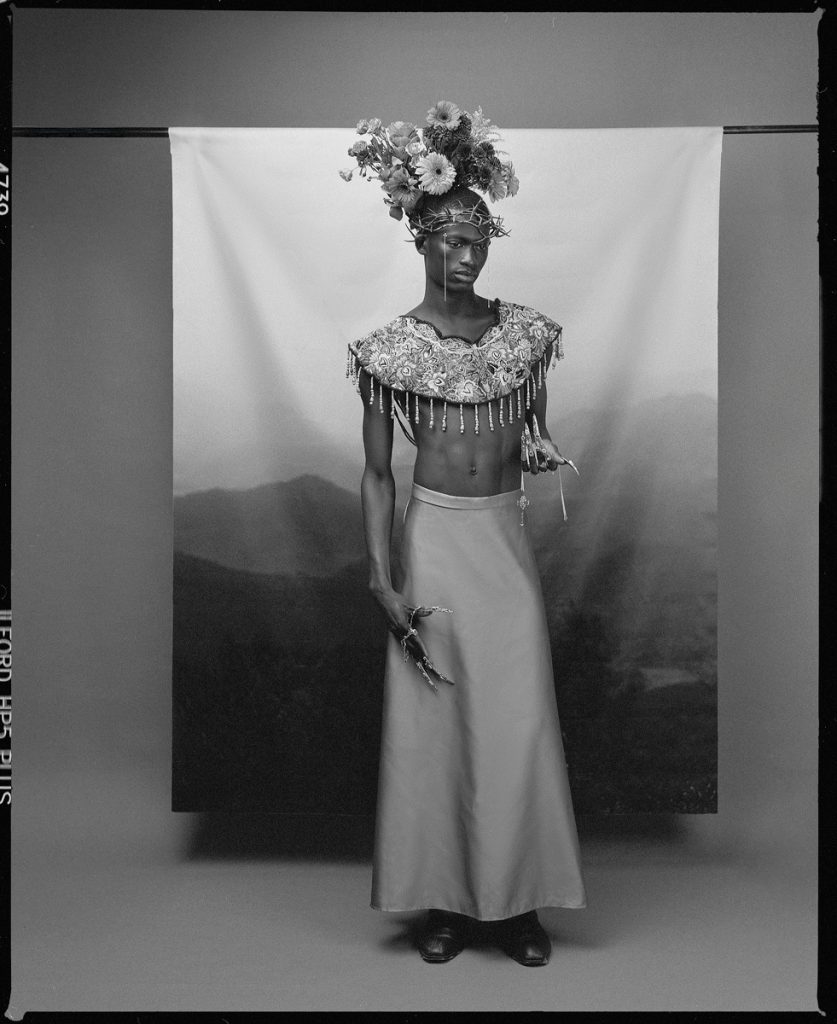
ILFORD HP5+
The Strongest Phase
Through every challenge—technical difficulties, scheduling delays, and evolving creative insights—La Santísima Tragedia emerged as perhaps the strongest phase of Fanesca to date. Each obstacle, from the camera failure to the team iterations, contributed to refining the concept and achieving breathtaking results.
A través de cada desafío —problemas técnicos, cambios de equipo, retrasos en la planificación y la evolución del concepto creativo—, La Santísima Tragedia ha emergido como quizás la fase más sólida de Fanesca hasta la fecha. Cada obstáculo, desde el fallo de la cámara hasta la reconfiguración del equipo, contribuyó a depurar el concepto y alcanzar un resultado impactante.
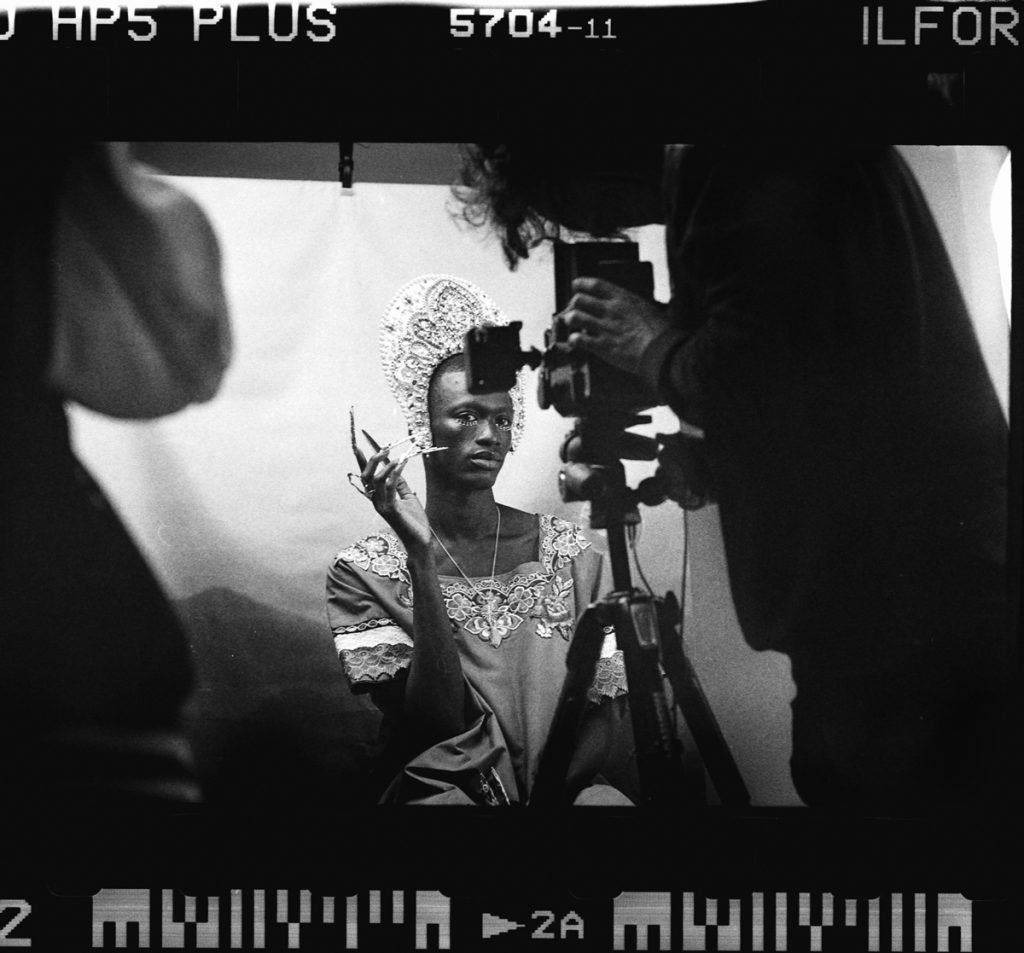
Power Of Storytelling
Thanks to ILFORD's support, this journey was possible, enabling Dávila to embrace trial and error as an integral part of the creative process. Fanesca continues to grow as a celebration of identity, culture, and the enduring power of storytelling through fashion and photography.
Gracias al apoyo de Ilford, esta fase ha sido posible, permitiendo a Dávila afrontar prueba y error como parte integral del proceso creativo. Fanesca sigue creciendo como una celebración de la identidad, la cultura y el poder perdurable del relato visual a través de la moda y la fotografía.
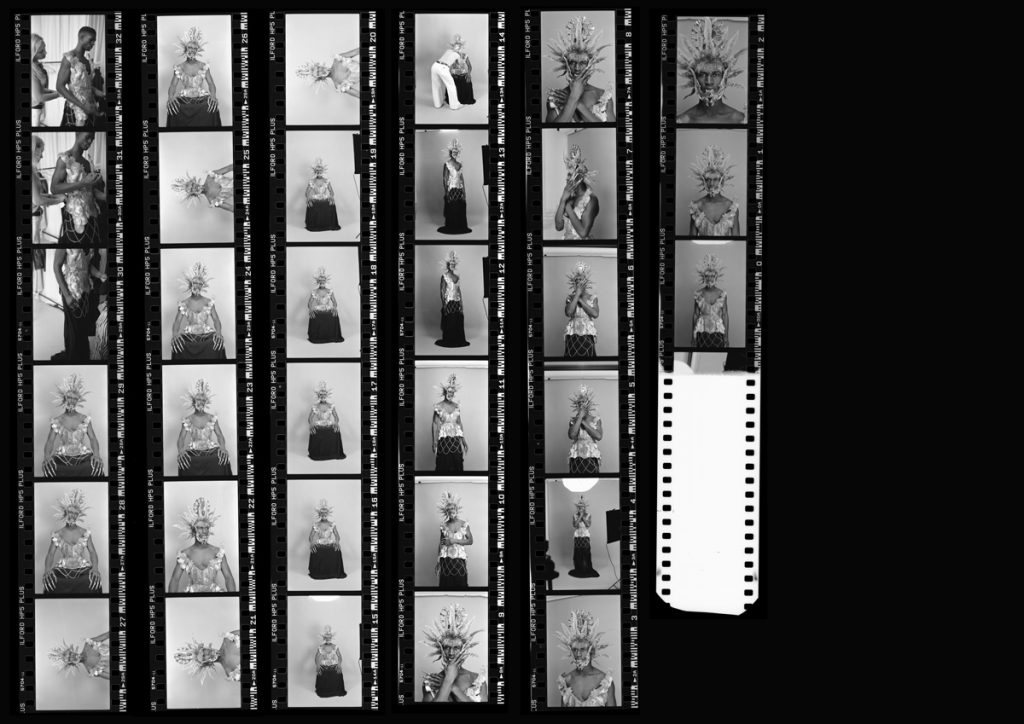
Images © Lucho Dávila
About The Author

Lucho Dávila
Ecuadorian-Spanish photographer Lucho Dávila, known as IAMTRECE, is a London-based artist whose work bridges fashion and cultural heritage. Since launching his independent career in 2018, Dávila has gained recognition for his evocative visual storytelling, earning features in The British Journal of Photography and PhotoVogue.
Described by Nylon Magazine as “a fusion that projects strength and a multifaceted vision,” Dávila’s photography explores identity, tradition, and society through the lens of his Latin American and European heritage. His latest body of work, Fanesca, examines cultural syncretism with striking narratives that blend fashion and cultural identity.
Dávila’s work has been featured in leading publications such as Vogue, Rolling Stone, Forbes, Nylon, and The Impression. He has collaborated with notable brands, including Off-White, and has been a creative presence at fashion weeks in Paris, London, and Madrid.
An MA graduate in Fashion Photography from the London College of Fashion (UAL), Dávila continues to develop personal projects alongside entrepreneurial ventures like Trece Studios, WhenWithYou magazine, and Analog Trips. His YouTube channel, iamtrece tv, further showcases his passion for storytelling through visuals.
Dávila is an ambassador for Epidemic Sound and SkillShare and a partner of Squarespace.
Lucho Dávila, fotógrafo ecuatoriano-español, también conocido como IAMTRECE, es un artista radicado en Londres cuya obra tiende puentes entre la moda y el patrimonio cultural. Desde el inicio de su carrera independiente en 2018, Dávila ha sido reconocido por su narrativa visual cargada de emoción, con publicaciones en medios como The British Journal of Photography y PhotoVogue.
Descrita por Nylon Magazine como “…una fusión que proyecta fuerza y una visión multifacética…”, su fotografía explora la identidad, la tradición y la sociedad a través de la lente de su herencia latinoamericana y europea. Su último proyecto, Fanesca, examina el sincretismo cultural mediante narrativas impactantes que entrelazan moda e identidad.
Su trabajo ha sido publicado en revistas como Vogue, Rolling Stone, Forbes, Nylon y The Impression, y ha colaborado con marcas como Off-White, además de haber participado activamente en semanas de la moda en París, Londres y Madrid.
Máster en Fotografía de Moda por la London College of Fashion (UAL), Dávila continúa desarrollando proyectos personales en paralelo con iniciativas emprendedoras como Trece Studios, WhenWithYou Magazine y Analog Trips. Su canal de YouTube, iamtrece tv, refleja su pasión por contar historias a través de imágenes.
Actualmente, Dávila es embajador de Epidemic Sound y Skillshare, así como partner de Squarespace.
Instagram: @iamtrece
Website: https://iamtrece.com/
Youtube: iamtrecetv?
Tiktok:@iamtrece







